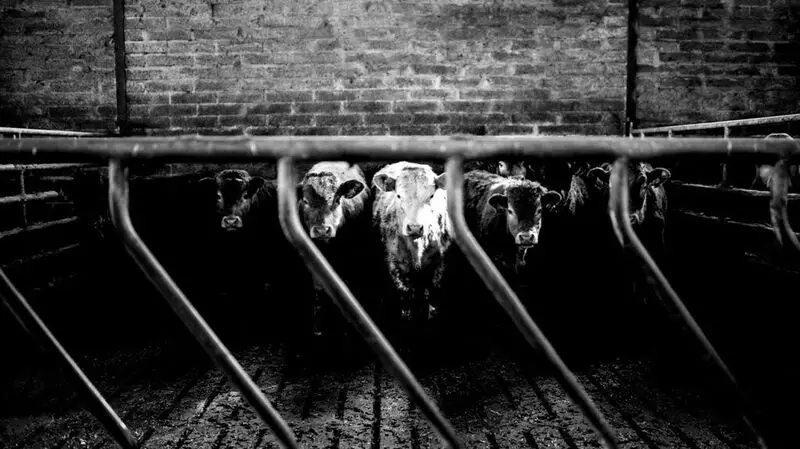
- A genetically altered brown bovine cow recently made history by producing human insulin in its milk.
- This diabetes breakthrough could pave the way for increasing insulin production, but more research on using transgenic cows to produce human insulin is needed.
- Insulin is a crucial component of diabetes management, but it is expensive and not always accessible.
Diabetes is a condition that develops when the body cannot properly produce or use insulin, leading to an imbalance of blood sugar levels.
Many people with diabetes take insulin, which helps glucose from food enter the body’s cells and convert the glucose into energy.
In 2021,
Because the global demand for insulin is so high and insulin is expensive, it is often difficult for people to obtain the insulin they need to manage their diabetes. Researchers are exploring how to increase insulin production so that it can be more readily available to those who need it.
For the first time, scientists genetically altered a brown bovine cow in Brazil and discovered human insulin and proinsulin, an insulin precursor, in the “transgenic” cow’s milk.
The results, published March 12 in
Non-study author Brett M. Sansbury, PhD, principal investigator and leader of discovery research at ChristianaCare’s Gene Editing Institute, commented on the potential implications of this research to Medical News Today:
“Genetic engineering has so much potential for significant advancements in how we understand, diagnose and treat diseases. This study highlights the promise this field has in applications for improving human health. While the researchers here describe the practical challenges they experienced in this proof-of-concept study, the implications for increasing the supply of an essential drug, with the potential to make it more accessible to a wider population suffering from a very prominent disease, could be very impactful.”
For this study, researchers explored whether certain genetic alterations of cows could produce proinsulin in their milk.
They noted genetic modifications to other animals to produce specific proteins had been successful in other research areas in the past.
Cows can produce large amounts of milk over long time frames, which could help with increased production.
Researchers utilized a process called
Researchers were able to produce highly specific transgenic embryos that were implanted into cows, successfully creating one transgenic cow.
Researchers next attempted to impregnate the transgenic cow, but these attempts were unsuccessful. In the end, they hormonally induced the cow to produce milk.
After allowing for 21 days of lactation, researchers collected the milk for next 30 days. They then performed tests, specifically western blotting and mass spectrometry, to evaluate the proteins present in the milk. They compared the results to those from non-transgenic milk.
The analysis’s results found proinsulin and insulin in the milk they evaluated from the transgenic cow.
“We were able to produce bio-active Human insulin in cow’s milk,” study author Dr. Matthew B. Wheeler, PhD, a professor of biotechnology and developmental biology with the Carl R. Woese Institute for Genomic Biology at the University of Illinois Urbana-Champaign, explained to MNT.
“The purpose was to produce an economical source of insulin for diabetic patients. The cow makes both the precursor form, proinsulin and insulin in her milk.”
The implications of these findings could make insulin more readily available, opening the door for further research that could improve diabetes treatments.
However, this new study does have several limitations.
First, the entire genetic modification process only produced one cow that effectively produced insulin. Researchers also only analyzed a specific portion of the milk, the portion that contained soluble proteins. It also needs to be clarified which enzymes helped convert proinsulin to insulin, so future research could also explore this.
“The biggest limitation of the study was that lactation was necessary for the cows to produce insulin, and transgenic animals often have difficulty getting pregnant via natural or artificial means,” Dr. Splenser noted.
“The researchers had to hormonally stimulate the cows to lactate, which led to small amounts of insulin-containing milk being produced. Although the authors did identify signs of proinsulin and insulin in the cow’s milk using western blotting and mass spectroscopy, they did not prove if the insulin produced in the cows was actually physiologically active in-vitro or in-vivo,” Dr. Splenser added.
Future research can replicate these findings and examine how this may apply to clinical practice.
Some experts say relying on genetically modified animals to produce insulin may not be necessary.
“Since the late 1970s, biosynthetic ‘human insulin’ has been produced mainly from E.coli and yeast,” non-study author Dr. Andres Splenser, an endocrinologist with Memorial Hermann in Houston, told MNT.
“This method of producing insulin is more humane and does not require the use of embryos or transgenic animals.”
Researchers must balance any ethical concerns of producing transgenic cows and related safety concerns. The potential risks of using genetically altered animals for human pharmacology are not well understood.
Dr. Wheeler was optimistic but noted that the research still has a long way to go:
“One day we may be able to use milk as a source of critical medical proteins for human patients and maybe even develop a way to get insulin to diabetic patients without injections. However, that is a number of years away. This is a proof of concept study that was published. We need to produce more animals and determine the amount of insulin they can produce and the effectiveness of that insulin for treating diabetes.”





